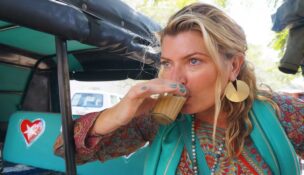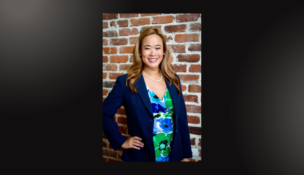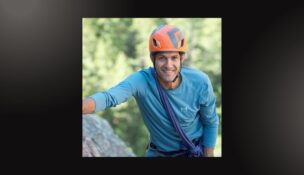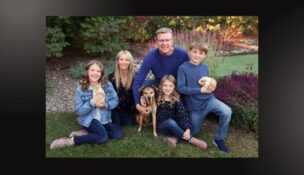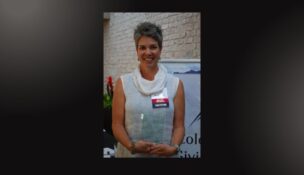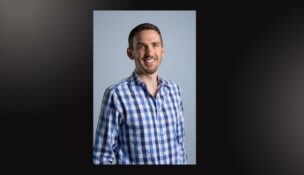6 Questions with Colorado Women’s Hall of Fame Inductee Marianne Neifert
Neifert has held numerous titles during her 45-year career, each with the goal of improving maternal-child health
Ali Longwell //May 7, 2020//


6 Questions with Colorado Women’s Hall of Fame Inductee Marianne Neifert
Neifert has held numerous titles during her 45-year career, each with the goal of improving maternal-child health
Ali Longwell //May 7, 2020//

This interview is one in a series of interviews with the 2020 Colorado Women’s Hall of Fame inductees. Each year, the Hall of Fame inducts a group of contemporary and historic women who have made enduring and exemplary contributions to their field while inspiring and elevating the status of women.
In her 45-year career, Marianne Neifert, MD, MTS, has served as a pediatric nurse, a nonprofit co-founder (multiple times), an advocate for mothers, a researcher, an innovator, an educator, an author (of the 1986 best-selling baby care book, Dr. Mom: A Guide to Baby and Child Care), a guest expert (appearing in magazines, on television and in front of crows across the nation), and a wife and mother.
In each of these titles, Neifert has dedicated herself to improving maternal-child health by providing education to health professionals, implementing model lactation services, helping re-establish breastfeeding as a community norm and advancing the nascent discipline of breastfeeding medicine.
Read more from ColoradoBiz’s conversation with Neifert about her biggest achievements, the paradigms she has shifted, the innovations she has brought to maternal-child health and much more.
ColoradoBiz: To start, tell me a little about your background and your journey to starting your career.
Marianne Neifert: My own five children were born between 1968 and 1975, during my educational preparation to become a physician. Although I was deeply committed to nursing my babies, I was unable to sustain breastfeeding as long as I would have liked with my first four children due to lack of role models and societal support; inadequate maternity leave; long separations from my babies, including overnight calls; lack of effective breast pumps or break times; and essentially no workplace support or knowledge about maintaining lactation when separated from an infant.
My fifth baby was born on the last day of my pediatric residency training, and I finally was able to make breastfeeding my high priority. By this time, as a female pediatric resident, I had been helping mothers maintain lactation for their premature and sick infants in the Neonatal Intensive Care Units (NICUs) at University Hospital and Children’s Hospital. I had immersed myself in learning about the physiology of lactation and the management of breastfeeding challenges.
A 2012 Colorado Women’s Hall of Fame inductee, Mary Ann Kerwin, was one of the founding mothers of La Leche League International (LLLI) in 1956. She founded a Colorado chapter of LLLI around 1960. Mary Ann was a powerful and inspirational role model for me and helped advance my career by recommending me to speak at national LLLI conferences, thereby launching my educational and thought leadership. I eagerly became part of LLLI’s movement to empower women to trust their own bodies and restore breastfeeding as a community norm.
CB: What are the moments/people/movements that defined your career?
MN: Early in my pediatric career, as I began helping breastfeeding mothers struggling with low milk supply, I conducted in-depth interviews and began examining women’s breasts. I learned so much from my conversations with mothers and by following their breastfeeding experience, and these insights led me to challenge several commonly accepted breastfeeding paradigms.
One of the first key observations I made was the link between breast surgeries, underdeveloped breasts and other breast variations and an increased risk of insufficient milk. Identifying and legitimizing medical causes of insufficient milk has reduced the unfounded guilt that can accompany women’s inability to breastfeed successfully.
I also was able to identify and publicize examples of newborns who may be at-risk for ineffective breastfeeding. To prevent these management-related causes of insufficient milk and ensure infants’ welfare, my close colleague, Joy Seacat, and I began using newly developed, automatic cycling electric breast pumps to proactively protect the mother’s milk supply.
In the early 1980s, Dr. Peggy Neville, a CU Professor of Physiology, introduced Joy and I to the concept of measuring infant milk intake when breastfeeding, using highly accurate research scales. Initially, this test-weighing procedure was widely presumed to be both unnecessary and too intimidating for mothers. Instead, it proved to be a game changer in breastfeeding management. We persuaded a major breast pump manufacturer to develop accessible and affordable, accurate infant scales that are used today in Neonatal Intensive Care Units and Lactation Consultants’ offices, as well as at home by mothers.
CB: What were some of the ways that you found success?
MN: As is so often the case, finding success involved taking healthy risks and moving outside my comfort zone. I began my medical career as a junior faculty member in the Department of Pediatrics at University of Colorado School of Medicine and envisioned spending my entire career in that capacity. In addition to teaching in a pediatric PA program, I developed special expertise in breastfeeding management and had begun speaking and consulting on lactation challenges and taking calls from patients in other states.
One of my earliest risks was making the decision to leave my full-time CU medical school faculty position in 1985 to co-found, with my close colleague, Joy Seacat, a model Lactation Program as part of Women’s Services at St. Luke’s Medical Center in Denver, a decision that changed the direction of my career.
That early Lactation Program became the prototype for comprehensive in-patient and out-patient lactation services, including innovative management strategies for lactation challenges, that are an accepted maternity care standard today. Joy and I also were co-founders of the Denver Mothers’ Milk Bank, today the largest non-profit milk bank in North America, and the Colorado Breastfeeding Task Force, now the Colorado Breastfeeding Coalition.
When I first began helping women overcome their lactation challenges, breastfeeding was considered an individual woman’s “personal choice.” Today, I am proud to say that the maternal and infant health benefits of breastfeeding are so widely recognized that breastfeeding has been elevated to a public health priority, warranting society-wide support. In Colorado, 90% of mothers begin breastfeeding their newborns, and more than 60% are still breastfeeding by 6 months.
CB: What is your proudest achievement?
MN: Without a doubt, my five adult children represent my proudest achievement. Each one makes the world a better place and collectively they relieve human suffering; have contributed to the defense of our nation; shape students’ futures and touch their lives; uphold the law and protect our citizens; smooth families’ paths to achieving the American dream; and guide and prepare my grandchildren for responsible adulthood. Peter, Paige, Tricie, Heather, and Mark are my greatest legacy.
Because I value education so highly, I am extremely proud of having shared what I have learned about breastfeeding with diverse lactation care providers throughout Colorado and nationwide. I have been privileged to educate health professionals about breastfeeding management across Colorado and in all 50 states and Washington DC at diverse venues, ranging from presenting Grand Rounds at prestigious medical schools and lecturing to large audiences at national meetings of professional associations to speaking to staff at community hospitals in rural areas and health care workers on Native American reservations.
In 1986, I established Colorado Lactation Journal Club, a unique-to-Colorado, enduring educational and networking venue for lactation care providers to keep participants informed about current breastfeeding research, and providing low-cost continuing education credits for nurses, dietitians and lactation consultants.
CB: What was your greatest hurdle and how did you overcome it?
I enrolled in medical school over 50 years ago as a young wife with a five-month old baby, at a time when only 10% of medical students nationwide were women. I had few female role models, and especially lacked models and mentors who were wives and mothers. To this day, I remain grateful to the key physician exemplars who encouraged and profoundly inspired me.
At the time that I became intensely interested in the medical management of lactation, breastfeeding medicine was not recognized as a legitimate area of medical academia. While it has taken decades, breastfeeding has been elevated from a woman’s “personal choice” to a public health priority warranting society-wide support. Today, breastfeeding medicine increasingly is taught in medical schools, and physician experts in breastfeeding medicine are commonly represented on prestigious medical school faculties.
In co-founding the international physician organization, the Academy of Breastfeeding Medicine in 1994, I was able to help elevate breastfeeding medicine to a legitimate subject area of medical practice. Since women disproportionately practice breastfeeding medicine, this has become a new medical frontier open to female physicians.
CB: What advice would you give to women today?
MN: When I was young, I thought I had to do everything at once. Now, I have learned the value of doing things more sequentially, and I recognize that there are different seasons of life. Being a mom is a sacred privilege. If I could go back, I would take more time to integrate each baby into our family. I would work part-time, instead of full-time, when my children were young, and savor more precious moments. I would say “no” to the requests of others more often in order to say “yes” to my own priorities.
I would advise women today to strive to maintain clarity about what they value most and then intentionally live in sync with their values. I have finally learned (often the hard way) that it is essential to say “No” to many good things in order to say “Yes” to our best thing.
I would remind women that each one of us has unique signature strengths, and it’s important to get in touch with those special, individual attributes. We are richly blessed when we find a way to use our signature strengths in as many life arenas as possible (family, career, community), and in service to a higher purpose. In my own work with breastfeeding pairs, it has been an immense privilege to “find a need and fill it” and to be fulfilled in the process.






